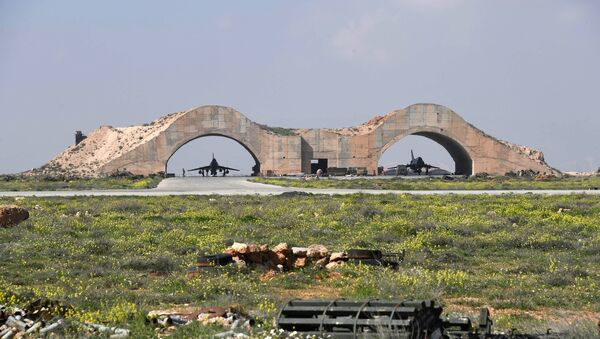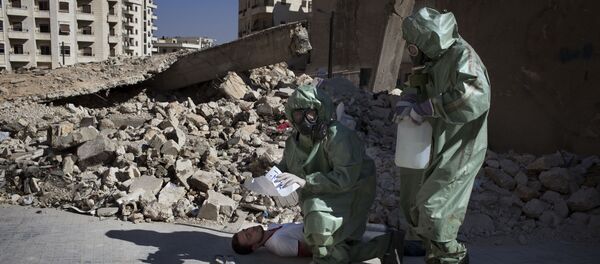"Having taken advantage of the US cruise missile strike on the Shai'rat airbase, used by Syrian aviation for actions near Hama and Palmyra, terrorists launched counter-attacks against government troops from the south-western direction. All their attacks were repelled, two battle tanks, three infantry fighting vehicles and eight trucks with heavy machine-guns, as well as over 150 terrorists were destroyed," Rudskoi said.
On April 7, the United States launched 59 Tomahawk cruise missiles at the Syrian military airfield in Ash Sha’irat. US President Donald Trump said that the attack was a response to the alleged chemical weapon use in Syria's Idlib province on April 4, which resulted in the death of over 80 people, an incident which Washington blames on the Syrian government.
The Syrian foreign minister denied the government’s involvement in the Idlib incident, saying it had never nor would it ever use chemical weapons on either civilians or terrorists operating in the country.
Russian President Vladimir Putin said on April 6 that groundless accusations in the chemical weapons incident in Syria's Idlib were unacceptable before the investigation into the matter had been carried out while Foreign Minister Sergei Lavrov on Saturday criticized the US missile attack as a violation of the international law.
Iranian Supreme Leader Ayatollah Ali Khamenei described the US missile strike against the Syrian airfield as a strategic mistake.
The US missile attack claimed the lives of 10 people, an officer of the Syrian Armed Forces told Sputnik. The Russian Defense Ministry said that the attack left two Syrian servicemen missing, four killed, and six suffering severe injuries from the fire. Homs Governor Talal Barazi said on April 7 that at least two civilians from a nearby village and five Syrian servicemen were killed.
After the missile attack, the Russian Defense Ministry suspended a point-to-point communications link with the US military under the memorandum of understanding on de-confliction in Syria.
The ministry said the Russian air group in Syria was protected by S-400 and Pantsir-S1 air defense systems on a round-the-clock basis.



